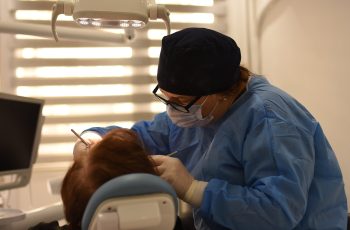Ad Blocker Detected
Our website is made possible by displaying online advertisements to our visitors. Please consider supporting us by disabling your ad blocker.
Are you looking for a natural way to boost your overall well-being and enhance your vitality? Look no further than supplements with DHEA. DHEA, also known as dehydroepiandrosterone, is a hormone produced by the adrenal glands that plays a crucial role in numerous bodily functions. By incorporating DHEA supplements into your daily routine, you can support healthy aging, promote muscle strength, improve mood, and even enhance sexual function. Discover the many benefits of supplements with DHEA and unlock your true potential.

This image is property of images.pexels.com.
What is DHEA?
Definition
DHEA, or dehydroepiandrosterone, is a steroid hormone produced naturally in the body. It serves as a precursor to both male and female sex hormones, including testosterone and estrogen. DHEA is synthesized in the adrenal glands, which are located on top of the kidneys. It plays a vital role in various bodily functions and has garnered attention for its potential health benefits.
Function
DHEA is involved in a wide range of physiological processes, contributing to overall wellbeing. One of its primary functions is the production of sex hormones, which are crucial for reproductive health and the development of secondary sexual characteristics. Additionally, it plays a role in regulating metabolism, maintaining bone density, and supporting cognitive function. DHEA also has antioxidant properties, which help protect the body against free radicals and oxidative stress.
Production in the body
The body naturally produces DHEA, with levels peaking in early adulthood and gradually declining with age. Peak production occurs in the mid-20s and slowly decreases thereafter. Stress, illness, and certain medical conditions can also impact DHEA production. The body converts cholesterol into DHEA, and its production is regulated by hormones secreted by the pituitary gland and the hypothalamus.
DHEA Supplements
Overview
DHEA supplements are created to provide a concentrated form of the hormone, which can be taken orally. These supplements are available over the counter and can come in various forms, such as capsules, tablets, creams, or gels. While the natural production of DHEA declines with age, some individuals may consider using DHEA supplements to potentially enhance their overall health and wellbeing.
Forms of DHEA Supplements
DHEA supplements are available in different forms, and individuals can choose the one that best suits their needs and preferences. Capsules and tablets are the most common form of DHEA supplements, allowing for convenient oral administration. Some supplements also come in cream or gel form, which can be applied directly to the skin for absorption. The choice of form should depend on factors such as ease of use and personal preference.
Benefits of Taking DHEA Supplements
Taking DHEA supplements may provide various potential benefits. Some studies suggest that DHEA supplementation may support hormone balance, cognitive function, and immune system health. It is believed to have a positive impact on the symptoms associated with hormone imbalances, such as fatigue, low libido, and mood swings. Additionally, DHEA supplements may help reduce inflammation, improve bone density, and enhance overall vitality and well-being. However, it is important to note that individual results may vary, and further research is needed to fully understand the potential benefits of DHEA supplementation.

This image is property of images.pexels.com.
Potential Risks and Side Effects
Interactions with Medications
DHEA supplements have the potential to interact with certain medications. Therefore, it is essential to consult with a healthcare professional before starting DHEA supplementation, especially if you are currently taking any medications. DHEA may interact with medications such as corticosteroids, insulin, and certain antidepressants. Interactions can affect the efficacy and safety of both the medications and the DHEA supplements.
Hormonal Imbalance
One potential risk of DHEA supplementation is the disruption of hormonal balance. Since DHEA is a precursor to sex hormones, excessive supplementation may lead to hormonal imbalances. This can result in various side effects, including acne, hair loss, and changes in menstrual cycles. It is crucial to monitor hormonal levels and consult with a healthcare professional to ensure the appropriate dosage and to minimize the risk of hormonal imbalance.
Liver and Kidney Health
Long-term use of DHEA supplements may have implications for liver and kidney health. Although rare, there have been reports of liver toxicity associated with high-dose DHEA supplementation. It is advisable to undergo regular liver and kidney function tests while using DHEA supplements to monitor any potential adverse effects.
Cardiovascular Effects
Some studies suggest that DHEA supplementation may have both positive and negative effects on cardiovascular health. While DHEA has been associated with improved cardiovascular risk factors, such as reducing abdominal fat and improving insulin sensitivity, excessive supplementation may have adverse effects. It is important to consult with a healthcare professional to determine the appropriate dosage and monitor cardiovascular health while using DHEA supplements.
Dosage and Administration
Recommended Dosage
The appropriate dosage of DHEA supplements can vary based on individual needs and health factors. It is crucial to consult with a healthcare professional before starting DHEA supplementation to determine the right dosage for you. Generally, the recommended dosage ranges from 25 to 200 milligrams per day. However, it is important to start with a lower dosage and gradually increase if needed, in order to minimize potential risks and side effects.
Methods of Administration
DHEA supplements are typically taken orally in the form of capsules or tablets. They should be taken with a meal or as directed by the product label or healthcare professional. Some individuals may choose to use DHEA creams or gels, which allow for topical application and absorption through the skin. The choice of administration method should be based on personal preference and convenience.
Timing of DHEA Supplement Intake
The timing of DHEA supplement intake can vary depending on individual goals and preferences. Some individuals may find it beneficial to take DHEA in the morning, as it can support energy levels and overall vitality throughout the day. Others may prefer taking it in the evening, as it may have a calming effect. It is recommended to follow the product label or consult with a healthcare professional to determine the most suitable timing for your specific needs.

This image is property of images.pexels.com.
Usage in Medical Conditions
Hormone Imbalance and Aging
DHEA supplementation has been used to address hormone imbalances, particularly in older individuals. As DHEA levels naturally decline with age, supplementation may help restore hormone balance and alleviate symptoms associated with aging, such as fatigue, muscle weakness, and lower libido. It is important to consult with a healthcare professional to assess individual needs and determine the appropriate usage of DHEA supplements in addressing hormone imbalances related to aging.
Sexual Dysfunction
DHEA has been studied for its potential benefits in addressing sexual dysfunction, particularly in women experiencing low libido and arousal disorders. Some studies suggest that DHEA supplementation may improve sexual function, increase libido, and enhance overall sexual satisfaction. However, further research is needed to establish its efficacy and safety in addressing sexual dysfunction.
Depression and Mood Disorders
Limited research suggests that DHEA supplementation may have a positive impact on mood disorders such as depression. It is believed to influence the production and regulation of neurotransmitters, which play a role in mood and overall mental health. However, more extensive research is needed to determine the potential benefits of DHEA supplementation in addressing depression and mood disorders.
Osteoporosis
DHEA supplementation has been explored as a potential treatment for osteoporosis, a condition characterized by decreased bone density and increased risk of fractures. Some studies suggest that DHEA may have a beneficial effect on bone density and skeletal health. However, further research is necessary to establish the optimal dosage and long-term safety of DHEA supplementation in managing osteoporosis.
Scientific Evidence and Research
Studies on DHEA Supplements
While there is a substantial amount of research on DHEA, the evidence regarding the benefits and risks of DHEA supplementation is still evolving. Some studies have shown positive effects of DHEA supplementation on various health markers, such as hormone balance, cognitive function, and bone density. However, it is important to consider the limitations of these studies, including small sample sizes and variations in dosages and forms of DHEA supplements. Further research is needed to establish stronger scientific evidence regarding the effects of DHEA supplementation.
Effectiveness and Efficacy
The effectiveness and efficacy of DHEA supplements vary depending on individual factors and health conditions. While some individuals may experience positive results, others may not observe significant changes. It is important to manage expectations and understand that the effects of DHEA supplementation can differ from person to person. Consulting with a healthcare professional and monitoring individual response can help determine the effectiveness and adjust the supplementation accordingly.

Legal Status and Regulations
Classification of DHEA
DHEA is generally classified as a dietary supplement in many countries, including the United States. This classification allows DHEA to be sold over-the-counter without a prescription. However, regulations and legal status may differ between countries, so it is important to check local regulations to ensure compliance and legality.
Availability and Prescription Requirements
Due to its classification as a dietary supplement, DHEA is widely available in health food stores, pharmacies, and online retailers. In general, DHEA supplements can be purchased without a prescription. However, it is important to consult with a healthcare professional before starting DHEA supplementation to ensure its appropriateness for individual needs and to avoid potential interactions with medications or pre-existing health conditions.
Choosing the Right DHEA Supplement
Quality and Purity
When choosing a DHEA supplement, it is essential to consider the quality and purity of the product. Look for supplements that are manufactured by reputable companies and undergo rigorous quality control measures. Third-party testing and certification can provide additional assurance of the supplement’s quality and purity. Reading product reviews and consulting with a healthcare professional can also help in selecting a reliable and trustworthy DHEA supplement.
Dosage Variation
DHEA supplements come in various dosages and strengths, ranging from 25 to 200 milligrams per dose. It is important to start with a lower dosage and gradually increase if necessary, based on individual needs and healthcare professional guidance. Choosing a DHEA supplement that offers a dosage suitable to your intended usage and goals can help optimize the benefits while minimizing potential risks and side effects.
Choosing Reputable Brands
With numerous brands offering DHEA supplements, it is crucial to choose reputable brands known for their quality and safety standards. Reputable brands often prioritize research, quality control, and consumer safety. Look for brands that have a solid reputation, positive customer reviews, and transparent labeling. Consulting with a healthcare professional can also provide guidance on selecting trustworthy brands.
Guidelines and Precautions
Consulting with a Healthcare Professional
Before starting DHEA supplementation, it is strongly recommended to consult with a qualified healthcare professional. They can assess individual health factors, discuss potential benefits and risks, and provide personalized guidance on dosage, administration, and monitoring. A healthcare professional can also help identify potential interactions with medications or pre-existing health conditions, ensuring that DHEA supplementation is safe and appropriate for individual needs.
Avoiding Overdose or Misuse
It is crucial to follow recommended dosage guidelines and avoid exceeding the recommended dose of DHEA supplements. Overdosing may increase the risk of side effects and complications. Regular monitoring of hormonal levels and adherence to the recommended dosage can help avoid overdose or misuse. If any adverse effects are experienced, it is important to promptly discontinue use and seek medical advice.
Monitoring Hormone Levels
Regular monitoring of hormone levels is essential when using DHEA supplements. This ensures that the supplementation remains within the appropriate range and identifies any potential hormonal imbalances or adverse effects. Healthcare professionals can perform blood tests to track hormone levels and provide guidance on adjusting the dosage or discontinuing supplementation if necessary.
Can Supplements With Dhea Be Used as Pre-Workout Supplements?
Yes, supplements with DHEA can be used as top pre workout supplements. DHEA helps improve energy and focus, which can enhance workout performance. Additionally, DHEA may promote muscle growth, making it a valuable ingredient in pre-workout supplements for those looking to maximize their fitness results.
Conclusion
Summary of DHEA Supplements
DHEA supplements offer a potential means of supporting overall health and wellbeing, particularly in individuals experiencing hormone imbalances, aging-related issues, or certain medical conditions. They are available in various forms, and the appropriate dosage and administration should be determined based on individual needs and guidance from a healthcare professional. While DHEA supplementation may provide several benefits, it is crucial to consider potential risks and side effects, as well as consult with a healthcare professional to ensure its appropriateness and safety.
Considering Personal Health Factors
When deciding whether to use DHEA supplements, it is important to consider individual health factors, such as pre-existing medical conditions and medication usage. It is advisable to consult with a healthcare professional who can assess individual needs, provide personalized recommendations, and monitor the effects of DHEA supplementation. By considering personal health factors and seeking professional guidance, individuals can make informed decisions about using DHEA supplements to potentially enhance their overall health and wellbeing.


